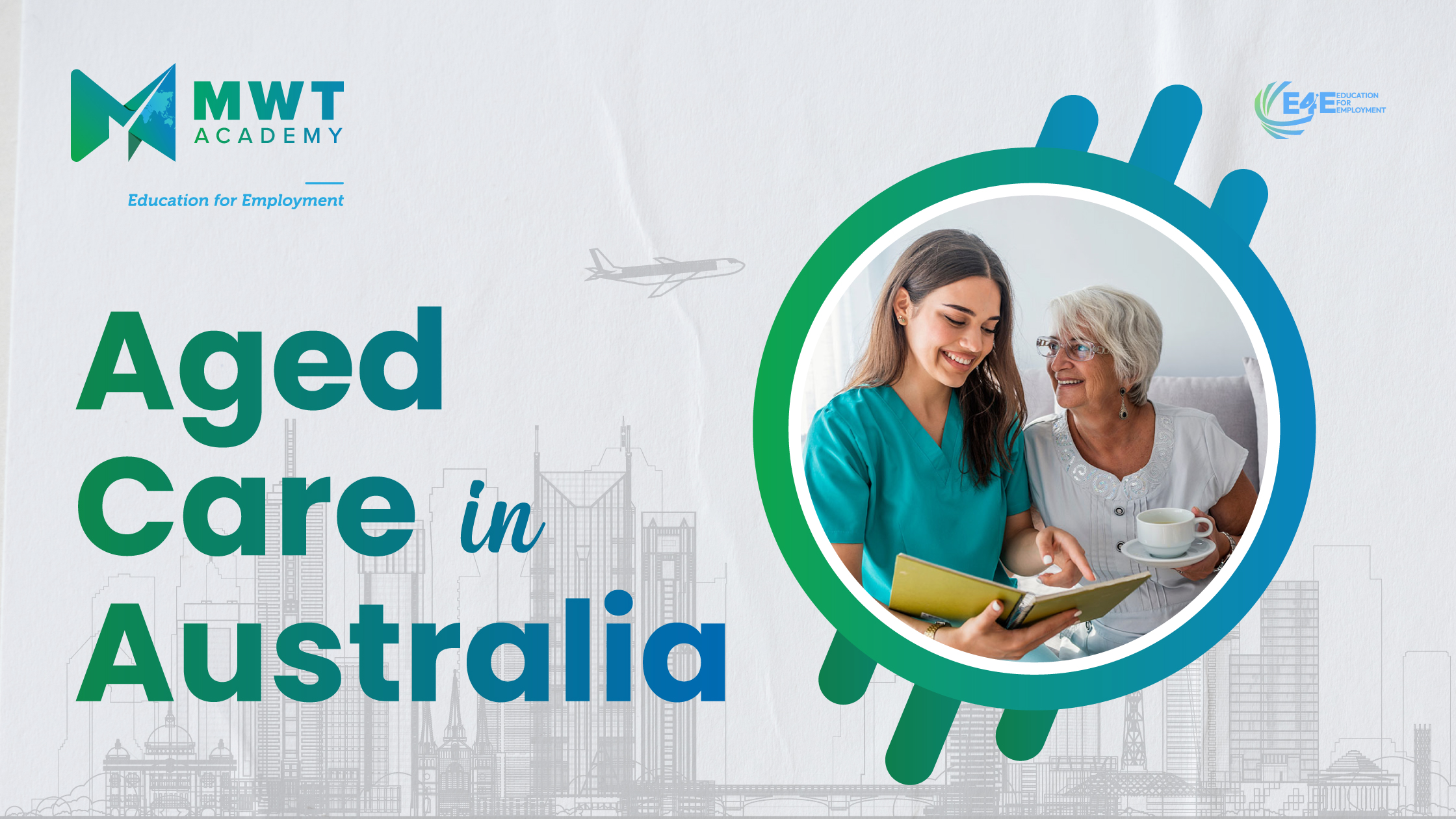
If you have chosen to take up a career in aged care, it indeed produces an important and profound change in your society and community as a whole. Despite the difficulties and seriousness that might come with this line of work, the rewarding moments and advantages make every day well worth it.
In this blog let’s look into important information that you must know before deciding to take up a job in Australia’s aged care industry. This will assist you in deciding whether or not an aged care career path is right for you.
Aged care workers are in high demand
By 2055, one-fourth of the Australian population would be 65 years of age or older, according to the Australian Human Rights Commission’s report on the Future of Australia’s Aged Care Sector Workforce. The demand for aged care services will be high notwithstanding the impact an aging population places on the healthcare sector and the financial burden younger generations will bear supporting retirees. Up to 2023, the Department of Education predicts that employment in the elderly and disability care sector will grow by 69,200 positions.
Career Pathways in Aged Care
In the aged care sector, there are numerous job options. There are many in-demand positions that call for workers with a variety of skill sets, availability, and educational backgrounds. You can decide which professions best suit your life and interests by knowing more about the many careers available in the sector. For instance, your job can entail providing constant care while residing with a client. Additionally, it could be as a multi-skilled caregiver, a nursing or personal care assistant, or a short-term respite care expert.
Required qualifications for a Career in Aged Care
Depending on the particular role they are hiring for, employers in the aged care sector will have a distinct set of requirements. Therefore, it’s crucial to decide on the type of job you’re interested in before enrolling in any educational programs.
High school graduation is often required for employment in the aged care sector, however additional education could be necessary for professions requiring medical expertise. Depending on how closely the degree is tied to the job, it could be a bachelor’s degree or a nursing degree. Both TAFE and University pathways provide significant options in this versatile profession.
Fortunately, there are alternatives to a costly four-year university degree for those interested in a career in this field. For individuals looking for a more time and cost-efficient way to learn first-hand from professionals in the sector, certificate programs are a good substitute.
Certificate III in Individual Support (Ageing, Disability)
Provided by IHNA, Certificate III in Individual Support (Ageing, Disability) is a professional accreditation that focuses on the factual, procedural, and technical knowledge that is necessary to deliver care to individuals in a community or residential setting. This course serves as an entry pathway into the aged care or disability care industry. The length of the training is 830 hours long that is offered in blended mode.
HLT33115 – Certificate III in Health Services Assistance
Also provided by IHNA, this qualification is meant for people in diverse roles who offer assistance to health professional staff with the care of clients. This qualification is also appropriate for Australian Apprenticeship pathways. The length of the training is 40 weeks full-time on campus and in blended mode.
CHC43115 – Certificate IV in Disability
IHNA’s Certificate IV in Disability is a professional accreditation that concentrates on the skills necessary to deliver care to individuals with disabilities in a community or residential setting. The length of the training is 950 hours or 52 weeks full-time in blended delivery.
CHC43015 – Certificate IV in Ageing Support
IHNA’s Certificate IV in Ageing Support is meant for support workers who perform specialized tasks and roles in aged services. They are required to undertake responsibility for their own work within defined organization guidelines and they function in residential, hospital, or community-based environments. The length of the training is 875 hours in blended delivery.
Aged Care Worker Salary
If you are working in the aged care sector your salary will differ depending upon a wide range of circumstances. Your specific job role and responsibilities, your qualifications, seniority in your field, location, etc. Though, the average hourly pay for an aged care worker in Australia is currently estimated to be $28.40 an hour. This amounts to an annual income of approximately $55,370 per year according to au.talent.com.
Conclusion
Working in the aged care sector surely comes with its set of both physical and emotional challenges but you will definitely gain a sense of purpose, find fulfillment in your work and make many connections that are invaluable. Contact MWT Global Academy for further information to help you decide on which course could be more suitable for you.
